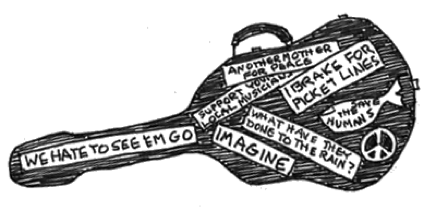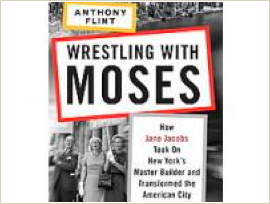


Today was
the anniversary of the A-bomb being dropped on Nagasaki, and I went to
the Berkeley Unitarian Fellowship Sunday service to hear a talk by a
Japanese-American woman with a rare point of view. Her father, born in
Hawaii, had been drafted into the US Army just before World War II; her
mother, born on the mainland, was sent to a relocation camp; and her
great-grandfather and great-aunt, who had been visiting Japan just
before the war started, got stuck there, and were killed in
Hiroshima.
Her
father didn’t want to shoot anybody, so he volunteered to be the
radioman. The field radios in those days were so heavy that the radiomen
were not required to carry a gun. So he was able to uphold the family
honor and show he was patriotic without directly killing anyone. She
talked about the Japanese-American soldiers realizing they were cannon
fodder but fighting for their buddies more than anything else. So in the
discussion after the offering I was able to contribute what I knew
about how that camaraderie was built, from what I had read in Just Americans a few weeks before.
Now I am reading Wrestling with Moses: How Jane Jacobs Took On New York’s Master Builder and Transformed the American City, by Anthony Flint. I remember reading Jacobs’ Death and Life of Great American Cities
and loving it, and now that I have spent a month in Greenwich Village,
her home and her main example of how a city works without being planned,
I can really appreciate her first battle—to save Washington Square from
being riven in two by an expressway. The photograph of a young Ed Koch
playing guitar in the Square is worth picking up the book for, but it’s
also well written. And who knew that Bob Dylan, before he became famous,
wrote a song against the planned Lower Manhattan Expressway that would
have wiped out the business district along Broome Street and displaced
thousands of residents. My favorite line comes after Jacobs and her
friends and neighbors save Washington Square, and Moses addresses the
Board of Estimate: “There is nobody against this,” he said. “Nobody,
nobody, nobody but a bunch of, a bunch of mothers.”

Ellen
Stekert interviewed Irving Fromer in 1984 for my mom’s biography. He
had been in charge of the illustrations and layout for her first
songbook, Song in My Pocket
(California Labor School, 1954, o.p.) and he and his wife Katherine
were friends of my parents’. I was listening to the tape on Thursday and
heard Irving tell a story I’d heard before.
“Katherine
was teaching second grade at Presidio Hill School, a cooperative school
in San Francisco. She was very much a musician and used music in her
teaching. She first brought in Malvina’s songs and later Malvina
[herself].
“Katherine
kept a guitar handy on the wall. There was an occasion, this must have
been maybe ‘54 and we already had a number of her songs. There was a new
kid came in, the kids just left him standing. Katherine picked up the
guitar and started singing ‘Move over and make room for Marty’ The kids
quickly got the idea, of course, and Katherine mentioned that that was
written by this woman who had also written some other songs she had sung
to them. This one kid gave her a very sharp look and said, ‘Does that lady know us?’ Katherine says, ‘Well, you haven’t met her, but she knows you, yes!’”
©2009 by Nancy Schimmel
carole leita
serendipitously, i've just taken "The Death and Life of Great American Cities" out of the library!
Wednesday, August 12, 2009 - 07:44 AM
Margaret Jackson
Happy
to see that you did read Robert Asahina's "Just
Americans". It filled in a lot of gaps for me especially
since I lived in Honolulu and California before, during and after the
war.
Friday, August 21, 2009 - 01:50 PM
I’m
two-thirds of the way through this book and ready to recommend it to
one and all, especially to every elected official in the City of
Berkeley, the members of the Planning Commission, and everyone in the
Planning Department.
Sunday, August 9, 2009


DOES THAT LADY KNOW US?






